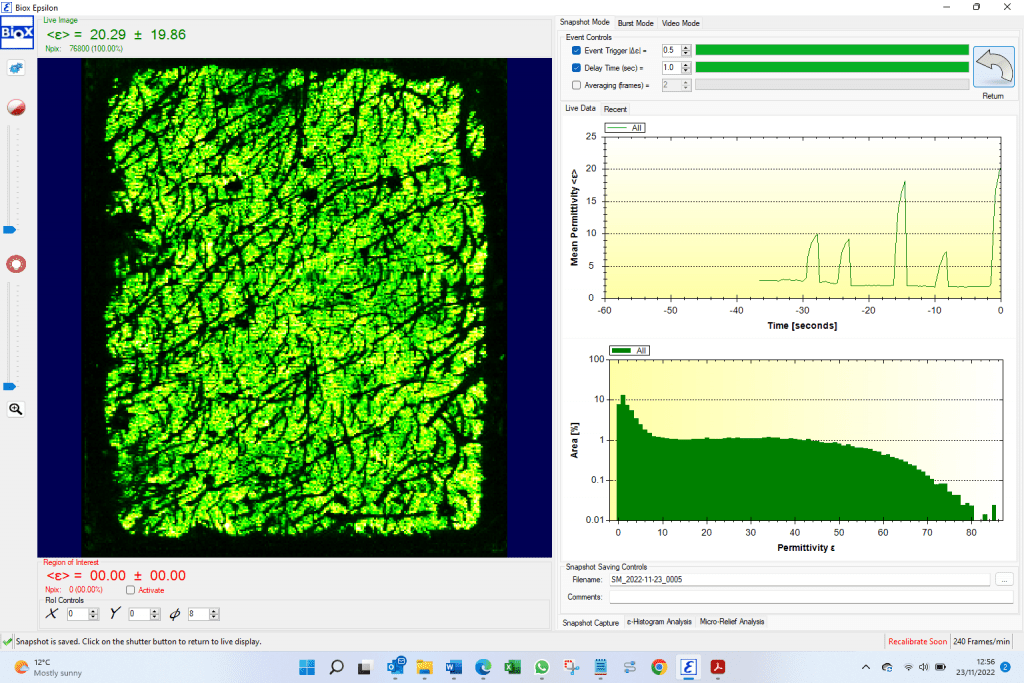Ground-breaking Research Reveals the Impact of Vegan and Marine Collagen on Hair and Skin Health
[London] – [Santi Skin Labs], a leading authority in skin health research, is pleased to announce the findings of its recent study comparing the effects of vegan collagen, marine collagen, and a control group on various parameters related to hair and skin health. The study, conducted by Tariq Karim, sheds light on the benefits of collagen supplementation and offers valuable insights into the advantages of vegan collagen.
The research study involved a total of 31 participants, divided into three groups: 14 participants in the vegan collagen group, 13 participants in the marine collagen group, and 4 participants in the control group. Measurements were taken for Hair Density, Hair Thickness, Sebum, pH, Elasticity, TEWL (Trans-Epidermal Water Loss), Hydration, and Collagen Score using ultrasound technology.
The key findings from the study include:
Hair Density:
Participants in both the vegan collagen and marine collagen groups experienced significant improvements in hair density, with the vegan collagen group showing a remarkable 24% increase and the marine collagen group demonstrating an 18% increase.
Hair Thickness:
Both the vegan collagen and marine collagen groups exhibited a commendable 10% increase in hair thickness, contributing to fuller and healthier-looking hair.
Sebum Regulation:
Vegan collagen demonstrated an impressive ability to regulate sebum production, with the vegan collagen group experiencing a 2% decrease, while the marine collagen group showcased a larger decrease of 12%.
pH Balance:
Both collagen groups demonstrated positive effects on pH balance, with the vegan collagen group showing a 4% increase and the marine collagen group exhibiting a slightly higher increase of 5%.
Elasticity:
Participants in the vegan collagen group experienced a substantial 19% increase in skin elasticity, while the marine collagen group showed the highest increase of 52% in this parameter.
Trans-Epidermal Water Loss (TEWL):
The vegan collagen group demonstrated a remarkable 20% decrease in TEWL, indicating improved skin barrier function. The marine collagen group also showed a minor decrease of 1% in TEWL.
Hydration:
Both the vegan collagen and marine collagen groups exhibited a significant 6% increase in skin hydration, contributing to a more moisturized and supple skin texture.
Collagen Score:
The collagen score, measured using ultrasound technology, revealed positive outcomes for both collagen groups. The vegan collagen group showed a 13% increase, while the marine collagen group exhibited a 10% increase in collagen score.
These findings emphasize the potential benefits of collagen supplementation for hair and skin health. Vegan collagen, in particular, showcases unique advantages, such as ethical sourcing, sustainable production methods, and compatibility with various dietary preferences.
Tariq, the head of Santi Skin Labs, expressed enthusiasm about the study’s outcomes, stating, “Santi is dedicated to advancing our understanding of skincare and haircare. The results of this study highlight the potential of both vegan and marine collagen in promoting hair density, hair thickness, sebum regulation, pH balance, elasticity, TEWL, hydration, and collagen production.”
It is important to note that while these findings are promising, further research with larger sample sizes is warranted to validate the results and draw more conclusive comparisons between vegan collagen and marine collagen.
For more information about Santi and its ground-breaking research, please visit us.
About Santi Skin Labs:
Santi is a renowned institution dedicated to advancing the field of skin health through cutting-edge research and innovation. With a team of expert scientists and state-of-the-art facilities, the centre conducts studies to explore the efficacy of various skincare and haircare interventions, ultimately providing valuable insights for the development of effective and evidence-based products.


Do you have to apply hyaluronic acid based creams and serums on damp skin? The answer will surprise you .. read on.
